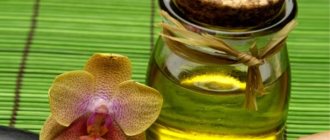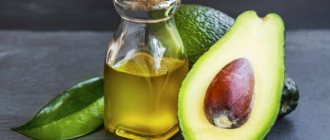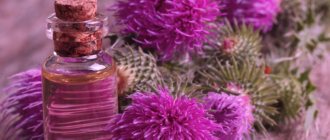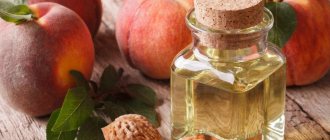The clove tree is named after its fruit resembles a carnation. The buds first grow upward and then open. Leaves and flowers secrete phytoncides in large quantities. On one of the Indonesian islands, after cutting down the clove thickets, the Aboriginal tribes were attacked by a pestilence, and there was no protection from infections.
Portuguese ships delivered spices overseas. Clove oil was used to fight cholera, a plague in medieval Europe, and was worth its weight in gold. In homes that smelled of cloves, diseases were avoided.
Today, cloves are a popular spice used in cooking and medicine. In combination with citrus fruits, it is used as an insecticide that repels blood-sucking insects. The aroma of cloves can be heard in sachets, toothpaste, and mouth rinses.
In pharmacology, its use is due to its antiseptic and bactericidal properties. Cloves are added to mulled wine and liqueur.
How is clove ether produced?
To obtain oil, various plant materials are used:
- unopened flower buds;
- ripened fruits of the clove tree;
- leaves and stems (this produces technical oil that requires distillation).
The process of obtaining oil is thermal. There are two ways:
- hydrodistillation - vapor sublimation followed by distillation;
- steam distillation.
The result is an oily liquid of light yellow color with a sweetish spicy aroma with fruity and fresh notes.
To produce 1 liter of clove oil, about 8 kg of flower buds or up to 15 kg of fruits are required.
The dried fruit of the plant is a spice. The content of aromatic substances in “carnations” is much lower than in unopened buds.
The crop is grown on an industrial scale in many countries. On the islands off the east coast of Africa and Southeast Asia, in Indonesia, Brazil, Tanzania, and the Philippines. The trees grow up to 15 meters in height and are covered in purple-red flowers in spring.
How to numb a tooth with cloves?
Sometimes a tooth can become so painful that you cannot work at your workplace. If you have a toothache, you should contact your dentist as soon as possible so that a specialist can make an accurate diagnosis and prescribe treatment. But if you cannot quickly find a free doctor, cloves will help relieve pain. This spice is used in cooking, preparations and even herbal medicine.
Ground cloves are a folk pain reliever used in the treatment of toothache.
Powder, oil or whole cloves are used for pain relief. The effectiveness of the product does not depend on the form; rather, it is a matter of individual preference. Mostly ground powder is used, since the spice is always available in the house in this form. How to numb a tooth with clove powder? A pinch of spice is placed between the gum and cheek, directly next to the diseased tooth. Mixing with saliva, the spicy powder reduces pain and the tissue around the tooth becomes numb. The spice in powder form is sold in any store; whole buds should be looked for on the shelves of grocery stores or in places where health food products are sold. Whole buds are placed behind the cheek in the area of the diseased tooth and held until they become soft. You can chew them to speed up the softening process. The saliva mixes with the natural oils of the spice and numbs the diseased tissues near the tooth.
Dried clove buds are rich in essential oil, which is a natural antiseptic.
Attention! Cloves for toothache will give maximum effect if you keep the spice for about half an hour. If the pain is very severe, the process is repeated.
Useful properties of the product
The benefits of clove oil have been known since ancient times. It's all about the high content of volatile components that affect the body's receptors. Almost 80% of the volume is occupied by ethers. Even in documents from past years, there were descriptions of the beneficial properties of the spice:
- Avicenna called cloves a wonderful remedy for treating heart disease;
- Odo, a French physician of the 11th century, claimed that cloves clear the mind and keep the stomach and liver healthy;
- healers of medieval Europe recommended midwives and midwives to use clove oil to increase the frequency of contractions and intensify pushing;
- Abbess Hildegard de Bingen of the Benedictine monastery of Rupertsberg, the great healer of the 12th century, used clove buds to heal deafness, as a remedy for headaches, dropsy;
- Ambroise Pare, a French surgeon, proved in the 16th century that cloves are an analgesic; the spice was used for toothache.
Clove buds and fruits are included in the British Herbal Pharmacopoeia and are recognized as a medicinal product in many countries.
The essence is used for aromatherapy purposes as a monocomponent or in combination with other esters.
Tips for using clove oil
Clove essential oil is a potent agent, so it can only be used in strictly defined doses. Exceeding them is fraught with intestinal disorders, burns and allergies. Some tips:
- do not use clove oil for more than 20 days in a row;
- When taking the oil internally, drink plenty of liquid, or even better, kefir (this way there will be no heartburn after it);
- do not be alarmed if a slight tingling sensation appears on the skin after application - this is a normal reaction
When enriching ready-made skin care products with cloves, do not do it for future use. Add a drop of oil to a single serving only. If you do make a medicinal cosmetic mixture for several uses, store it in a dark bottle - the oil quickly decomposes in the light.
For conditioner or shampoo for dry hair, you can add a mixture of oils directly to the bottle. Add 20 drops of clove ether to 15 ml of jojoba oil. Prepare the mixture in an amount corresponding to the volume of the main product. Pour the mixture into shampoo and shake well. For oily hair, it is recommended to add oil only in a single portion.
Aromatherapy characteristics
Treatment with clove aromas was practiced in Ancient China, India, and Indonesia. Healers learned to use the spice as an energy stimulant. After inhaling healing vapors, energy and strength for new plans and achievements appear, fears and anxieties disappear.
The psychotherapeutic effect is used to eliminate the consequences of emotional overload and depressive disorders.
Aromatherapy using clove essence relieves hysterical conditions and calms nervous tremors. The sweetish incense makes lethargy and apathy disappear, and increases performance and endurance. Memory improves, thought processes are activated.
It is recommended to add oil to the aroma lamp container at the rate of 2 drops per 1 m² of room. The session lasts up to 5 minutes; repeating the procedure more than 3 times a day is not recommended.
The spicy plant clove, the oil of which is produced by many manufacturers, is partly undervalued at present. For aromatherapy purposes, due to its expressive, dense aroma, it is used much less frequently than other essential oils.
Cloves for toothache. How to quickly get rid of toothache
1. Garlic
In addition to protecting against vampires, garlic is a true medicinal miracle, being an effective antiseptic with powerful antiviral, antifungal and antibacterial properties. It has been used for medicinal purposes for many thousands of years. What gives it its power is called allicin, which is released when garlic is crushed.
Finely chop one clove of garlic, then crush the pieces with a knife and leave for 10 minutes to activate the allicin. Apply a small amount of garlic paste to the sore spot in the mouth. Leave on for a few minutes and rinse with warm salt water, which will help clear out the infection and kill bacteria.
This will also help defeat the infection from the inside, since you probably have swelling or inflammation in the sore spot. Also try to add as much garlic to your diet as possible. You can even eat it yourself by crushing it first and allowing the allicin to activate. Remember that, unlike antibacterial drugs, bacteria do not develop resistance to garlic, so you can eat it constantly, and then eat parsley to remove the unpleasant odor.
2. Clove oil
Cloves have anti-inflammatory, antibacterial, antioxidant and anesthetic properties that can help relieve toothache and fight infection. This is the main oil that is used to get rid of dental problems if it is not possible to go to the dentist right now.
It is so useful in the fight against dental problems because of one component included in its composition. We are talking about eugenol, a natural anesthetic. It fights all types of toothache. Clove oil can also be found in many dental products. Take half a liter of water, add a few drops of clove oil and rinse your mouth with the solution, you can also apply clove oil to a cotton pad and very carefully treat the sore tooth and the area around it. The pain will go away very quickly.
Chemical composition
Clove oil, which has a variety of uses, is a storehouse of volatile hydrocarbons. The main component is eugenol. Also includes:
- methyl salicylate;
- caryophyllene;
- acetyl eugenol;
- α-humulene;
- bicyclic sesquiterpenes;
- methyl benzoate and benzyl alcohol;
- linalool;
- cineole;
- vanillin;
- other volatile substances.
The oil is rich in microelements, easily digestible salts of calcium, potassium, iron, phosphorites, vitamins A and C; the spice contains bitterness, tannins, fats, and oleanolic acid.
Clove tree Syzygium aromaticum is a plant from which ether is made.
Application in cosmetology
Therapeutic masks with cloves, scrubs, and lotions have a rejuvenating effect. The aromatic and practical characteristics of the essential composition are valued:
- tart aroma;
- warming effect;
- anesthesia;
- cleansing;
- disinfection.
Essential oil in cosmetology is used in combination with other aromatic substances.
For skin and hair
Clove components are indispensable in skin care products for the face, neck, and décolleté. Clove oil tones the dermis and is indispensable for oily skin types. By improving blood circulation, it returns a healthy color to the face and promotes a light blush.
The essential oil contained in cloves transforms hair, making it silky and vibrant. Clove extracts are added to shampoos, styling and hair care products. Cloves stimulate hair growth, revitalize dormant hair follicles, stop the harmful effects of dyes, and smooth out structural scales.
For this purpose, you can enrich industrially produced skincare products by adding 2-3 drops of essence per 50 ml of base.
Expectant mothers should use the product only after the permission of the attending physician.
For the treatment of pimples and acne
Clove oil perfectly relieves inflammation of the sebaceous glands, slightly dries the skin, eliminates acne, and prevents their appearance. Irritation is eliminated, sweating is normalized, fatty deposits do not accumulate in the pores - a breeding ground for bacteria.
Acne is no longer complicated by inflammation and is easily removed. For this purpose, apply the essence precisely to the site of inflammation using a cotton swab.
Uses of clove oil
Crushed cloves placed in the mouth have an analgesic effect and quickly relieve pain. But clove essential oils are so strong that they can cause severe damage to healthy tissue. This means that the oil must be used carefully and in small doses.
Means for teeth
A drop of clove oil placed on the tooth cavity will provide quick relief. It is safer to use cotton balls soaked in a mixture of clove oil and coconut oil. Take 1 tbsp. l. coconut oil and 1 tsp. clove oil and shake well. Use it as a convenient dental treatment as needed. It can be used to relieve gum pain from developing wisdom teeth and various injuries.
Soothes inflammation of the mouth and throat
Clove oil will provide pain relief, but additional benefits come from the anti-inflammatory and antibacterial effects of eugenol and other phenolic compounds in the essential oil.
Gargling with warm water and clove oil will improve hygiene and reduce pain and inflammation. Clove essential oil perfectly relieves sore throat, acid reflux, bacterial and viral infections such as strep throat, tonsillitis, laryngitis, etc.
Add 1 tsp. salt in a cup of warm water and 8-10 drops of clove oil. Gargle with this solution two to three times a day.
Breath freshener
The spicy aroma of clove oil acts as an instant breath freshener thanks to its long-lasting antimicrobial property. You only need to greatly dilute the suspension to do this.
Mix 2 drops of clove and peppermint oil in a cup of water. Add stevia extract for flavor (optional). Fill an empty air freshener spray bottle and use as needed.
Against nausea and vomiting
Pregnant women who suffer from morning sickness may benefit from keeping a bag of dried cloves near their pillow to relieve nausea and vomiting. Rubbing clove oil onto your pillows or using it in a diffuser with a few drops of peppermint oil is equally effective.
Clove oil can be sweetened with honey to counteract loss of appetite and food aversions in people after long-term illnesses. One drop of clove oil in a cup of water with sugar or fruit juice is usually sufficient for children.
Improves digestion
Cloves along with cinnamon, cardamom, cumin and coriander seeds are an integral part of the spice mixture called garam masala. Culinary spices are suitable not only for improving the taste and aroma of dishes, but also help digestion. Clove oil affects digestion by increasing the secretion of digestive enzymes. It is believed to speed up digestive motility and the movement of food down the digestive tract.
Brew a teaspoon of cumin in 2 glasses of water for 5 minutes. Let it cool. Strain it into a glass jar and add 5 drops of clove oil. You can add stevia extract or another sweetener to make it more palatable, especially for children. Drink 30 ml before or after meals.
Relieves flatulence
Clove oil is an excellent remedy against flatulence. When taken orally, it reduces gas formation and facilitates its elimination. Flatulence can be caused by excessive intake of air during meals, improper digestion of carbohydrates and protein-rich foods such as whole grains and beans, and overeating. If your stomach bloating usually occurs after eating, then it is a good idea to take a clove oil decoction as a precaution to avoid heartburn and stomach pain.
Add 2-3 drops of oil to a cup of warm water and drink it. This mixture will help reduce the discomfort that follows after eating a heavy meal.
Prevents food poisoning
Cloves have long been used as a spice in food preservation because their antimicrobial properties slow down food spoilage. Eugenol and other phenolic compounds in clove oil are very effective against a wide range of bacteria, both gram-negative and gram-positive species. In laboratory tests, essential oils of clove, thyme, and oregano have the greatest antimicrobial effect against several bacteria, including E. coli.
If you accidentally eat food that may have been spoiled, you can take a couple of capsules of clove oil. They will help reduce bacterial proliferation and related problems.
Fungal infections
Clove oil can easily cope with fungal infections caused by yeast, including vaginal candidiasis. Antibiotic therapy often destroys pathogenic and beneficial intestinal bacteria, which often leads to fungal overgrowth in the gastrointestinal tract. Many antacid medications or antibiotics are a typical example. Oral candidiasis is a major problem for people who wear dental appliances.
Fungal infections are successfully treated with clove oil, whether on the skin or in the mouth. It is even safer than fungicidal medications from pharmacies.
Heat 2 tbsp. coconut oil until melted. Mix in 1 teaspoon of clove oil and let cool. Apply this mixture as an antifungal agent to the affected area. It is primarily used externally for fungal infections on the skin, although it may sting a little.
To protect against insects and pests
Cloves are good at repelling mosquitoes and flies. The oil is used when cleaning premises, adding it to water for washing floors to get rid of bedbugs and cockroaches. Clove esters are part of industrial insecticides for children and are safe for health.
Oil is also used in the preparation of culinary masterpieces, usually dessert dishes and drinks.
Fungus treatment
As mentioned above, clove essential oil has antiseptic properties. Numerous studies have proven that it inhibits the growth of fungi and can get rid of fungal infections. Eugenol contained in cloves kills Candida fungi and yeast cells, and also strengthens the body's immunity.
To get rid of thrush in the intestines or oral cavity, dilute clove oil (15-30 drops) in warm water, the resulting composition is consumed orally 3 times a day. To improve the taste, you can add rose, grapefruit or cinnamon essential oil.
Pure clove oil will save you from fungus on your feet and nails. It should be applied to damaged areas. For sensitive skin, it is recommended to dilute the oil with coconut or olive oil.
Other Applications
Clove esters are used to prepare massage oil, homemade ointments, lotions, and aromatic baths.
To combat fatigue
Tinctures, decoctions, and teas with a concentration of essential components of up to 1% are recommended. Foot baths (add up to 7 drops of oil extract per liter of water), washes with clove compositions (add 2 drops of ether or 10 drops of Carmolis to 1/2 cup of cool water) relieve tension. Vigor returns, mood improves.
As an aphrodisiac
In alternative medicine there are many recipes for sexual impotence. Cloves improve blood circulation, enhance hormone production, and increase libido levels.
In men, the cause of impotence is often nervous tension; cloves will help you relax and take your mind off problems. Oil is added to food and drinks, but not more than 5 drops per day.
For fresh breath
Many manufacturers add clove oil to chewing gum. Even at the court of the Chinese Emperor Tzu, his subjects chewed spicy “cloves” so as not to defile the ruler with foul breath.
Etherol eliminates the cause of unpleasant odor, treats diseases of the oral cavity, and removes tartar. For rinsing, dilute ether in a ratio of 4 drops per 200 ml of water.
Application
The properties and uses of clove essential oil are inextricably linked. Thanks to its disinfectant and antibacterial components, it helps get rid of dandruff, skin parasites, and eliminates scalp itching. With increased secretion of sebum, clove essential oil for hair helps: mix it with other components, apply to hair after washing, rub lightly with fingertips and wrap head for half an hour. You cannot use a pure product for this cosmetic procedure to avoid burns.
To make your hair feel better and give off a pleasant smell, a method such as aromatherapy combing is used. To do this, wipe the teeth of the comb with a cotton swab dipped in oil, and then comb your hair along the entire length.
Insects, including blood-sucking ones, cannot tolerate the smell of cloves. This has long been used in the production of industrial products, such as Antikomarin and others. But you can prepare such an insect repeller with your own hands - by the way, such a substance that repels insects with its smell is called a repellent. It also saves you from bedbugs, so before going into the forest it’s a good idea to drop a few drops of the extract onto your outerwear.
To sleep peacefully and not listen to the thin ringing squeak of a mosquito, just put a napkin with drops of oil or moistened with an alcohol-oil mixture next to the bed. But the aroma will spread better throughout the room if you apply it to a regular lamp or light an aroma lamp.
And if some particularly stubborn mosquito does bite, then treatment with the product will soothe the itching and pain, and relieve swelling at the site of the bite.
Contraindications and precautions
Along with its benefits, the oil can be harmful if used in excessive concentrations. Causes burns and allergic reactions. Some people have an individual intolerance to the aroma of the spicy plant.
The essence should be used with great caution in the later stages of pregnancy, especially for internal use - the spice stimulates the muscle tone of the uterus.
Cloves are prohibited for children under 2 years of age; they also affect the taste of breast milk. Patients with tachycardia and severe forms of neurasthenia should avoid use.
Clove ether harmonizes with the aroma of sandalwood, cumin, and cardamom.
Contraindications
Clove essential oil (reviews confirm this) has a strong, specific odor. Its aroma can cause nausea and vomiting. You should be especially careful when using this product. In large quantities, it can cause difficulty breathing, stomach irritation, liver damage and kidney failure. However, if the dosage is observed, health problems should not arise. During pregnancy and breastfeeding, you should consult a specialist before use.
How to make clove oil at home
You can purchase ready-made Clove essential oil at a pharmacy or store. Those who want to make their own oil should:
- grind 2 tbsp. l. dried “cloves”;
- fill a gauze bag with the mixture;
- Place any vegetable oil (200 ml) in a water bath heated;
- heat, stirring for half an hour, then put in a warm place for a day.
The finished oil is used for medicinal purposes, cooking, and cosmetology. It will differ in action and properties from a commercial essential product, but can still be beneficial if used correctly.
Cosmetology
Before using clove essential oil in home cosmetics, you should remember that its use should be in minimal quantities, and you should also avoid getting the pure concentrate on a large area of the skin. In its pure form, this product is used only for spot treatment of problem areas. Also, this product is contraindicated in case of increased excitability of the central nervous system and during pregnancy.
In the process of preparing cosmetic masks, it is advisable to adhere to the following proportion: 4 drops of clove oil per 1 tbsp. spoon of oil base. Use the prepared mixture only on damaged areas of the skin, avoiding contact with the eyes. Blackheads and pimples are applied to spots; only characteristic growths should be treated.











